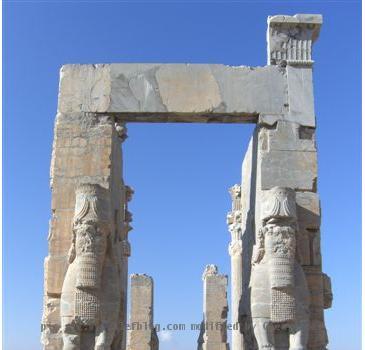AP Exclusive: Confidential letters reflect Iran’s anger, cloud success of planned nuke talks
By George Jahn, APThursday, August 5, 2010
AP Exclusive: Iran defiant in nuclear documents
VIENNA — As Iran and world powers prepare for new nuclear talks, letters from Tehran’s envoys to top international officials suggest little prospect of major progress, with Tehran combative and unlikely to offer any concessions.
Two letters, both written late last month and obtained by The Associated Press, reflect Iran’s apparent determination to continue the nuclear activities that have led to new rounds of U.N., EU, and U.S. sanctions over fears that Tehran might be seeking to develop nuclear arms.
At the same time, world powers preparing to talk to Tehran are unwilling to cede ground on key demands concerning Iran’s uranium enrichment activities, dimming prospects that the new negotiations will ease tensions.
Iran insists it want to enrich uranium only to make fuel for a planned reactor network and denies accusations that it will use the program to make fissile warhead material.
But international suspicions are strong. Tehran hid its enrichment program until it was revealed from the outside. And it acknowledged constructing a secret nuclear facility to the International Atomic Energy Agency last year only days before its existence was publicly revealed by the U.S. and Britain.
Since its enrichment program was unmasked eight years ago, Tehran has defied four U.N. Security Council sanctions meant to pressure it into freezing enrichment. Sporadic negotiations between Iran and all or some of the permanent U.N. Security Council members plus Germany also have failed to make headway.
The International Atomic Energy Agency, in its latest tally in June, said Iran was now running nearly 4,000 uranium-enriching centrifuges and had amassed nearly 2.5 tons of low-enriched uranium that can be used for fuel.
That’s also enough for two nuclear bombs, if enriched to weapons-grade levels.
Reinforcing his country’s hard line, Iranian President Mahmoud Ahmadinejad on Wednesday warned the West against “resorting to lies and hue and cry” in attempts to pressure his country into making nuclear concessions.
The letters, provided to the AP by an official on condition of anonymity because of their confidential nature, address two sets of talks tentatively set to resume this fall.
In one negotiation round, the U.S. Russia, China, France Britain and Germany will again push for an Iranian commitment to freeze enrichment. The other will try to revive talks involving Tehran, Washington, Paris and Moscow on a fuel swap for Iran’s research nuclear reactor.
A letter addressed to Catherine Ashton, the EU foreign policy chief, slams her offer to resume talks a day after the U.N. Security Council passed its fourth set of sanctions, calling it “astonishing,” and describing subsequent E.U. and U.S. sanctions as “even more astonishing.”
“This kind of behavior … is absolutely unacceptable,” says the letter, from Iran’s top nuclear negotiator, Saeed Jalili.
The second letter says that “irrational conditions” imposed by the West are blocking a new round of the fuel swap talks. Addressed to International Atomic Energy Agency chief Yukiya Amano and signed by Ali Asghar Soltanieh, Iran’s chief IAEA delegate, the letter accuses the five permanent members of the U.N. Security Council of poisoning the atmosphere “through (the) imposition of another illegal resolution.”
While both letters say Iran is ready to talk, the one to Ashton — the point person for the six big powers — sets the bar perhaps unreachably high, suggesting that Tehran is prepared to come to the table only if the other side ends its “hostility,” avoids “any kind of pressure or threat” and states its “clear position on the nuclear weapons of the Zionist regime.”
The previous meeting between Iran and the five permanent Security Council members plus Germany in October ended inconclusively on an enrichment freeze but led to agreement to start the fuel swap negotiations. That, in turn, foundered after Tehran balked at shipping out most of its low-enriched uranium in exchange for fuel rods for the research reactor.
While Iran says it is now ready for a swap, its interlocutors say the terms must be renegotiated because Tehran has since enriched much more uranium, meaning that it would still have enough to enrich to weapons grade, even if it now shipped out the original amount agreed upon.
Additionally, Iran is now enriching to higher levels, which can be turned into weapons grade uranium more easily — material it says it needs to turn into fuel rods after the deal stalled last year. The West demands the process be stopped before any consideration of new fuel swap talks.
In what the West sees as a further complication, Iran has enlisted Turkey and Brazil in pressing for a return to the fuel swap talks essentially under the original terms now rejected by its interlocutors. Russia has welcomed Iranian calls to invite Brazil and Turkey to the negotiations, while the U.S. and France are skeptical.
“The Iranians say they want to meet without preconditions, then they lay out a bunch of preconditions,” said a Western official from a European capital who is familiar with the issue. The official, who asked for anonymity because his information is confidential, said there is a “long way to go before we know who will be at the table and when.”
A diplomat from an IAEA member nation familiar with the talks said that Brazil and Turkey may not be keen to join any negotiations and risk sharing the blame, should they fail. He, too, asked for anonymity because his information was confidential.
Tags: Europe, Foreign Policy, Germany, Iran, Iran-nuclear, Middle East, North America, Nuclear Weapons, Tehran, Turkey, United States, Vienna, Weapons Of Mass Destruction, Western Europe

